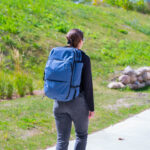Embarking on a trip to Australia, especially with your ETA travel visa in hand, is an exciting prospect. As you prepare to explore the unique landscapes and vibrant cities, it’s essential to be aware of local laws and safety guidelines to ensure a smooth and trouble-free journey. Understanding these aspects will not only keep you out of legal trouble but also contribute to a safer and more enjoyable experience Down Under. This guide, drawing from official sources, outlines crucial information every traveler should know before and during their Australian adventure.
Navigating Australian Laws and Regulations
Like any country, Australia has its own set of laws, and it’s important to remember that these apply to everyone, including visitors. Unfamiliarity with these laws is not an excuse, and violations can lead to serious consequences, from fines and arrest to imprisonment or deportation.
Criminal Penalties: Know What’s Prohibited
It’s crucial to be mindful of activities that are considered illegal in Australia. While some may seem obvious, others might be less apparent. For instance, photographing certain buildings, including areas within airports, near prisons, and military bases, is prohibited. Always be observant of signage and when in doubt, refrain from taking pictures in sensitive locations.
Furthermore, remember that certain actions, even if legal in your home country, might be prosecutable under U.S. law if they involve crimes against minors abroad. It’s always best to err on the side of caution and be aware of both Australian and applicable U.S. laws. Resources like the U.S. Department of State and Department of Justice websites offer detailed information on this.
Alcohol and Drug Laws: Strict Enforcement
Australia has stringent laws regarding alcohol and drugs. Penalties for drug-related offenses, including possession, use, and trafficking, are severe and can result in lengthy prison sentences and substantial fines. It’s essential to be aware of and adhere to Australian drug laws, which are detailed on the Australian Department of Health webpage.
Driving under the influence of alcohol is also a serious offense and can lead to jail time. Random breath testing by police is common throughout Australia. If you plan to consume alcohol, it’s always safest to arrange for alternative transportation or designate a driver who will remain sober.
Health and Safety Measures
Australia prioritizes public health and safety, implementing measures that travelers should be aware of.
Potential Health Screenings: Public Health First
Australian authorities have broad powers to prevent the entry of diseases that could pose a public health risk. In the event of a public health emergency, such as an outbreak of a communicable disease, arriving passengers may be subject to strict health screenings. These measures can include testing, monitoring, and potential quarantine. Cooperation with health officials during such screenings is essential.
Customs and Quarantine: Protecting Australia’s Ecosystem
Australia has very strict customs and quarantine regulations, particularly concerning the importation of agricultural goods, plants, food products, and wood products. These measures are in place to protect Australia’s unique environment and agricultural industries. Strict quarantine standards also apply to animals and pets.
Before packing, consult the “Can you bring it in?” resource provided by Australian Border Force and contact the Embassy of Australia in Washington, D.C., or Australian consulates in the U.S. for detailed information on specific customs requirements. The Australian Government’s Department of Agriculture website is another valuable resource.
Natural Disasters: Be Prepared
Australia is prone to various natural disasters, including bushfires, floods, and severe storms. These events can be unpredictable and dangerous. It’s crucial to stay informed about local conditions and monitor weather and safety reports. Develop a plan of action in case of emergencies and be prepared to follow instructions from local authorities. The U.S. Department of State webpage offers resources on storm preparedness and disaster response.
Staying Safe During Your Activities
Australia’s natural beauty offers incredible opportunities for outdoor recreation and adventure, but it’s important to be aware of potential safety concerns.
Outdoor Recreation and Wildlife: Respect the Environment
Australian wildlife, while fascinating, can also be dangerous. From jellyfish and crocodiles in the waters to venomous insects and snakes on land, it’s vital to respect the local fauna and take necessary precautions. Refer to visitor information guides like the Wet Tropics Management Authority guide for insights into Australian wildlife and marine life.
When swimming, always choose patrolled beaches and swim between the flags where lifeguards are present. Never swim alone. Surf Life Saving Australia’s website provides comprehensive beach safety information.
If you plan to snorkel or scuba dive, follow recommended safety precautions and never dive alone. Ensure you are properly certified and aware of local conditions.
Considerations for Specific Travelers
Australia is a welcoming country for all travelers, but certain groups may have specific considerations to keep in mind.
LGBTQ+ Travelers: Inclusivity and Respect
Australia is known for its inclusive approach to LGBTQ+ rights. There are no legal restrictions on same-sex sexual relations, and discrimination based on sexual orientation is prohibited under federal law. Australia legally recognizes same-sex marriage and grants visas to same-sex partners of Australian citizens. For more information, refer to the U.S. Department of State’s Travel Information page for LGBTQ+ travelers and their Human Rights report.
Travelers Requiring Accessibility Assistance: Accessible Infrastructure
Australia has laws in place to prevent discrimination and ensure accessibility to premises, facilities, and accommodations for people with disabilities. While older areas of cities may have some accessibility challenges, most public transport, parking, streets, and buildings are accessible. Tourist spots may vary in accessibility. Many accommodations and venues provide accessibility information on their websites, which is worth checking when planning your itinerary.
Students and Women Travelers: Resources Available
Students traveling to Australia should consult the U.S. Department of State’s Students Abroad page and the FBI travel tips for students. Women travelers can find specific safety tips and advice on the U.S. Department of State’s travel tips for Women Travelers page.
In Case of Emergency
Arrest Notification: U.S. Embassy Assistance
If you are arrested or detained in Australia, immediately ask the police or prison officials to notify the U.S. Embassy. The U.S. Embassy can provide assistance to U.S. citizens who are arrested abroad. Refer to the U.S. Department of State webpage for further information on arrest procedures and embassy assistance.
Conclusion
Traveling to Australia with your ETA visa is an exciting adventure. By being informed about local laws, safety guidelines, and health measures, you can ensure a safe, legal, and enriching travel experience. Remember to stay updated on local conditions, respect Australian regulations, and enjoy your journey with peace of mind.
References:
- Crimes Against Minors Abroad
- Department of Justice
- Australia’s Department of Health Webpage
- U.S. Embassy Webpage on Arrest
- Can you bring it in? (Australian Border Force)
- Embassy of Australia in Washington, D.C.
- Australia’s consulates in the United States
- Australian Government’s Department of Agriculture Website
- U.S. Department of State Webpage on Storm Preparedness
- Wet Tropics Management Authority visitor information guide
- Surf Life Saving Website
- U.S. Department of State Travel Information page for LGBTQ+ travelers
- U.S. Department of State Human Rights report
- U.S. Department of State Students Abroad page
- FBI travel tips for students
- U.S. Department of State travel tips for Women Travelers


